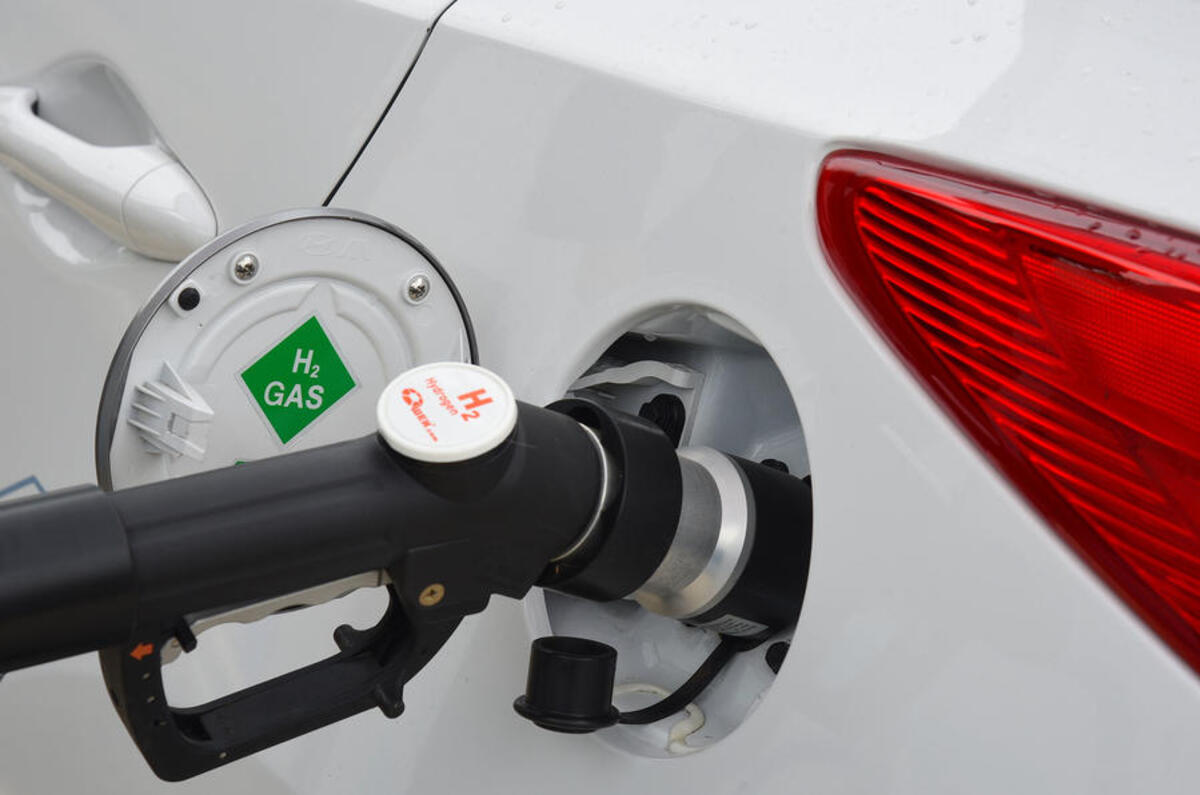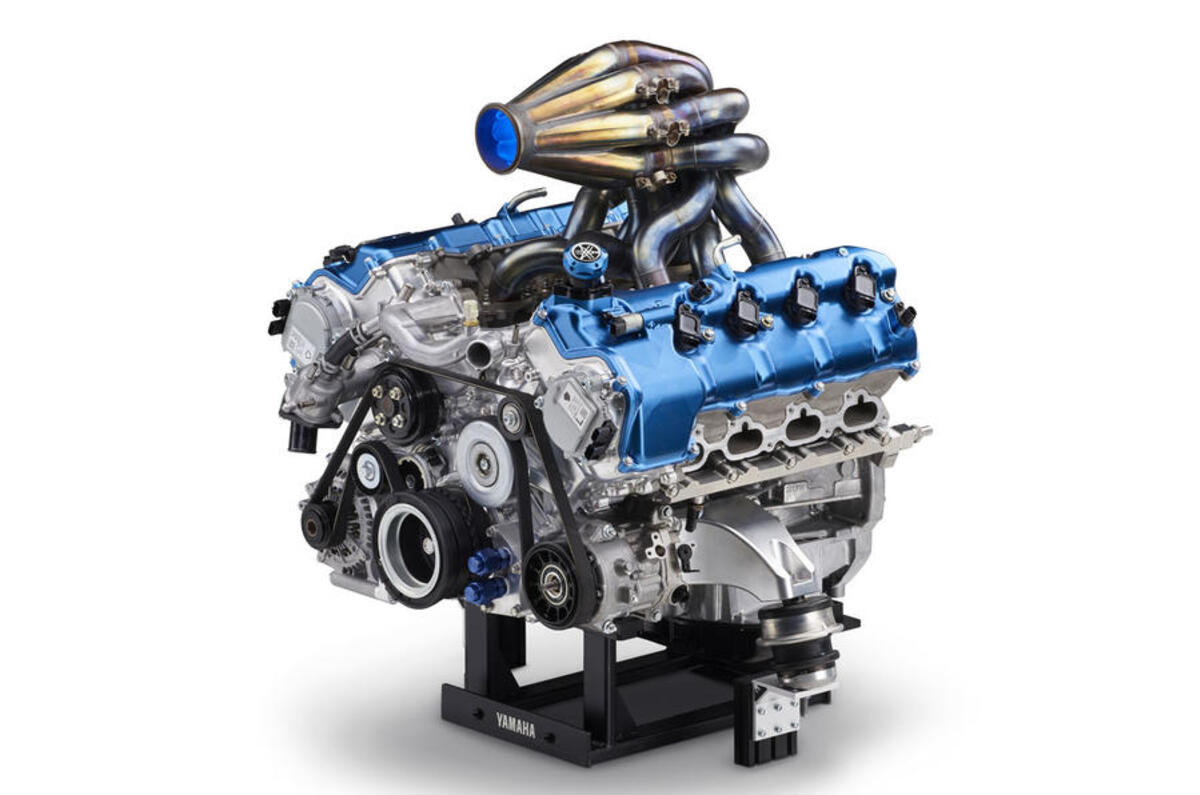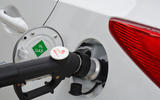Stellantis is working on hydrogen combustion engines as one of four different solutions to zero-emissions driving, CEO Carlos Tavares has said.
Tavares was speaking at the opening of the Symbio hydrogen fuel cell factory in Lyon, France. Symbio is an equally owned joint venture between Stellantis, automotive supplier Forvia and tyre maker Michelin.
Stellantis – which owns 14 car makers, including Alfa Romeo, Citroën, Jeep, Peugeot and Vauxhall – is trying to diversify the number of drivetrains available under European Union decarbonisation rules.
“Hydrogen injection is one of the four technologies we're working on,” Tavares said after the plant opening.
He criticised legislators for their “brutal” methods to move car makers away from fossil fuels and steering them towards EVs.
“Now the dogmatic thinking is being hurt by reality, because if you aren't affordable, then people can't pay for it,” he said.
Stellantis is diversifying its drivetrain options to cater to those customers for whom EV charging is a drawback.
“The real competition is starting between fuel cell, EVs, hydrogen internal combustion engines and even synthetic fuels,” Tavares said. “We will see in the next few years what is going to be the best solution for the citizens.”
Burning hydrogen in combustion engines has been seen as the easiest solution for zero-emissions driving, especially among commercial vehicle makers, given the lack of disruption to supply chains it would cause compared with BEVs or FCEVs.
Petrol engines need to be modified to accept hydrogen, but much of the same mechanism remains. The hurdles then are establishing a refuelling network and making green hydrogen at scale.
Tavares didn’t say which vehicles would be offered with hydrogen combustion engines, but Stellantis has already begun selling its K0 range of mid-size vans (think the Vauxhall Vivaro) with a hydrogen fuel cell option.
Stellantis will also offer a hydrogen fuel cell version of the Ram Heavy Duty pick-up truck in the US in late 2026 or early 2027, Tavares said.
Hydrogen tanks are easier to package in a van, while the lesser weight of a fuel-cell or hydrogen-combustion van compared with a battery-electric one would allow for a greater payload.
Toyota has demonstrated hydrogen combustion engines in both Toyota Yaris and Toyota Corolla race cars running in Japan, while the Renault Group has showcased one in the Alpine Alpenglow supercar concept.
Hydrogen and synthetic-fuel combustion engines are favoured by motorsport concerns as they move to zero-carbon fuels, because they retain the sound of current race cars.
The idea is also being heavily promoted by European producers and suppliers of heavy-duty vehicle as they look for ways to reduce disruption to their businesses.
A consortium called the Hydrogen Engine Alliance, comprised of the likes of Daimler Truck, Claas, Isuzu, JCB, MAN and suppliers such as Bosch, BorgWarner and Dana, has been established to better make the case for the ICE route.







Join the debate
Add your comment
Honda have ditched it, Toyota has come round and says it won't work for commercial use, BMW and Mercedes have put it on the shelve so Stellantis are just after a bit of green news. Next.
Would it make sense to have another option?, and, what are we going to do with all all this surplus Oil in the ground?, must be something crude Oil can be safely used for?
"Tavares said governments need to subsidise the purchase of fuel-cell vans at a rate of €30,000-40,000 per van for the next “three to five years” to bring the cost down to the level of battery-electric alternatives and stimulate the market."
I am confused